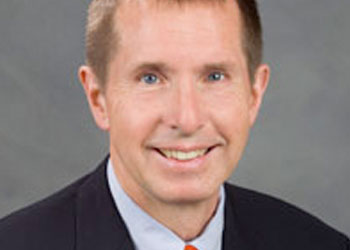By Dr. Ed Whipple
As a University administrator for over 30 years I have worked with a myriad of student leaders, some fantastic and others not so fantastic. I also have taught leadership courses, both at the undergraduate and graduate levels. The discussion always seems to center on “what is leadership?” “Is one born a leader?” “What are the traits of an effective leader?” Of course, there is no correct answer to any of these three questions, other than “it depends.” Living this year in Washington, DC is providing me with a unique view of the nation and the world. This city is probably one of the meccas for journalists and everyone has an opinion on something. And, given this very long presidential primary season, it is interesting to see leadership traits at play among the candidates. Now to top it off, is the Penn State issues which really point to questions of leadership responsibility and accountability. Thus, the last several weeks have caused me to think more about the importance of strong leadership and what it means, especially for fraternity chapter leaders.
As I reflect on “what leadership is” I do know one thing it is not – words. Washington, DC is full of a lot of “words” with no action behind them. The same is true for student leaders. I don’t know how many times I worked with student leaders, both at the undergraduate and graduate levels, who said they were going to do something, but didn’t follow-through. Ironically, this lack of follow-through is one of the most common complaints I have heard from fraternity leaders about their own members – jobs and tasks are assigned, the member is charged with accomplishing a project whether it be organizing a social, rounding up volunteers to work with a youth event, collecting delinquent dues, or planning an alumni program – and then nothing happens, except excuses.
Why don’t things happen? For chapter leaders, similar to the Penn State situation with the University leaders and football staff, there are numerous reasons: some leaders don’t think follow-through on an issue is important, no one really cares about what is at stake, it may upset others if certain decisions are made, or the final decision may be unpopular. The Penn State situation most clearly aligns itself with chapters not holding members accountable for their actions. Ultimately, it is the president of a chapter that has to take responsibility when dealing with problems that are in possible violation institution policy, or local, state, or federal laws. Many chapter presidents fail this test of responsibility because it is “tough to make a tough decision.”
Then, how do we instill in our Phi Delta Theta chapter leaders that sense of leadership where the “right” decision needs to be made? As it pertains to our Fraternity, I am convinced that what a good leader is, or how to deal with problem members is not the answer. It goes back simply to what each man pledged of himself when he joined Phi Delta Theta: living daily our cardinal principles. Actually, this is really all our leaders need in terms of understanding what leadership is. Friendship, sound learning, and rectitude say it all. Friendship is the ability to develop healthy relationships with everyone from fraternity brothers to alumni to university and college administrators and to faculty. Those leaders who are most effective have the relationships with others where clear communication is evident and trust and honesty are engendered. Sound learning is not only about going to class and being a decent student, it also means having a greater understanding of the world in which one lives and the understanding of the many dynamics and influences impacting and affecting society. “Seeing the big picture” is an important part of one’s education and understanding how, for example, fraternity fits into that picture on a campus. Rectitude obviously focuses on doing the “right thing.” All of us know what the “right thing” to do in a given circumstance is; however, many don’t want to admit that nor do they want to make that right decision due to the possible unpopularity of the decision. Integrity is a huge piece of rectitude. And, we see today where our leaders, from politicians to football coaches and university presidents, must strive to embody those same Phi Delta Theta cardinal principles, or as we have seen, their lives, both personally and professionally, implode.
I always have said that our Phi Delta Theta chapters across the United States and Canada would all be the premier student organizations on their respective campuses if each man lived, on a daily basis the three cardinal principles to which he pledged himself when he joined the Fraternity – friendship, sound learning, and rectitude. And, our chapter leaders would be integrating, on a daily basis, their words with those actions.
Dr. Ed Whipple (Indiana Epsilon ’74) is the Senior Fellow for NASPA – Student Affairs Administrators in Higher Education, the national student affairs association based in Washington, D.C. Dr. Whipple currently serves as a Trustee on the Phi Delta Theta Foundation. He was President of the General Council, 1992-94 and prior to that served as Treasurer and Reporter of the Council. He also was Fraternity’s Scholarship Commissioner and in 1987 was the first Dean of what was then the Phi Delta Theta Leadership College. Prior to his current position served as Vice President for Student Affairs at Bowling Green State University. He also has held administrative positions at Iowa State University, University of Alabama-Tuscaloosa, and Montana State University-Billings and taught at both the undergraduate and graduate levels courses in English literature, U.S. public education, and higher education and student affairs. Prior to his higher education work, he was a high school English and French teacher and swim and track coach. Dr. Whipple holds degrees from Willamette University, Northwestern University, and Oregon State University.





